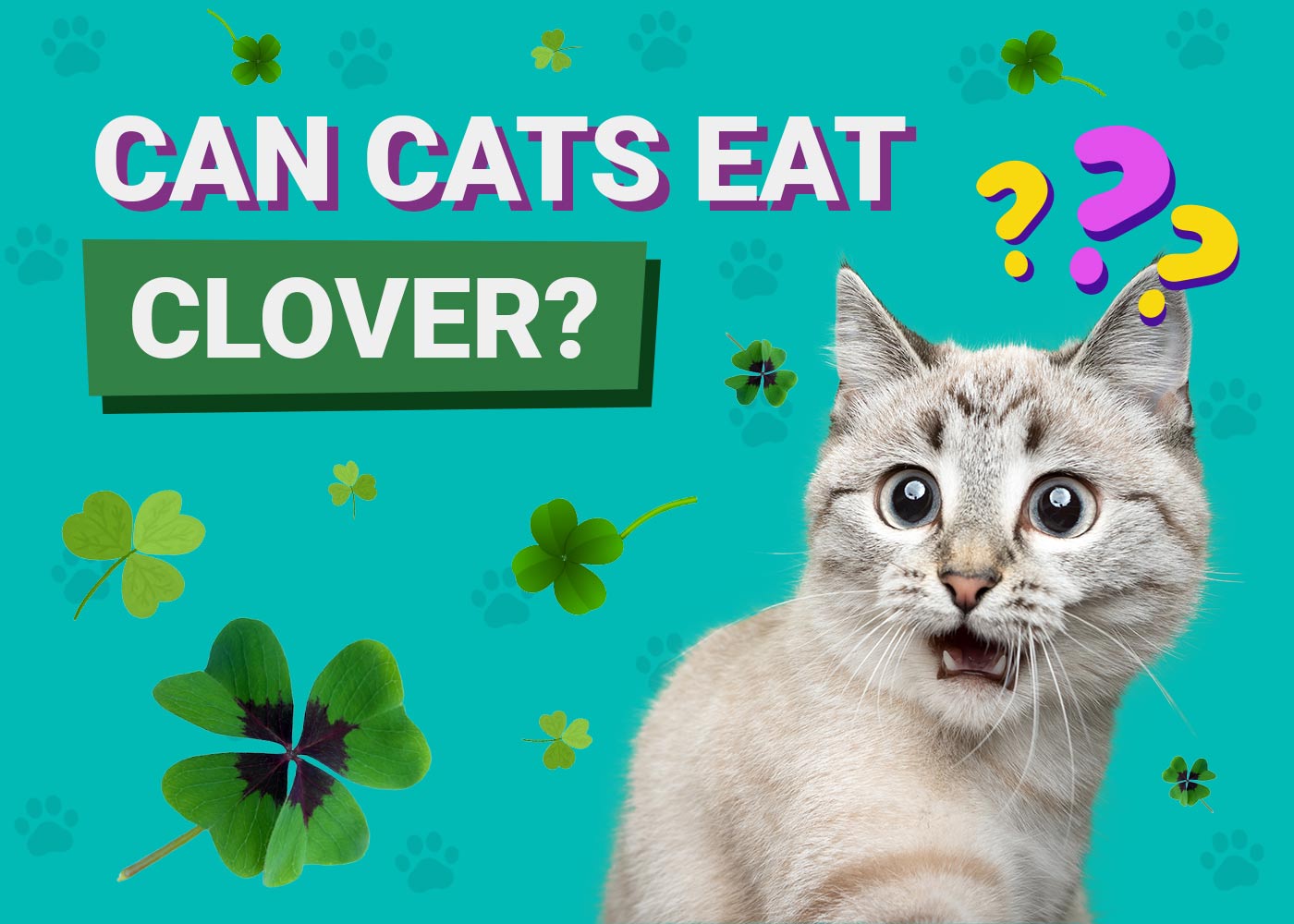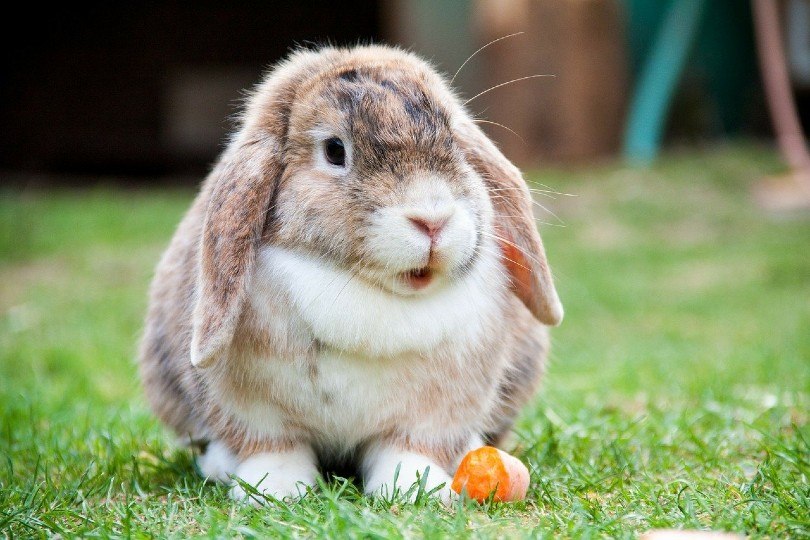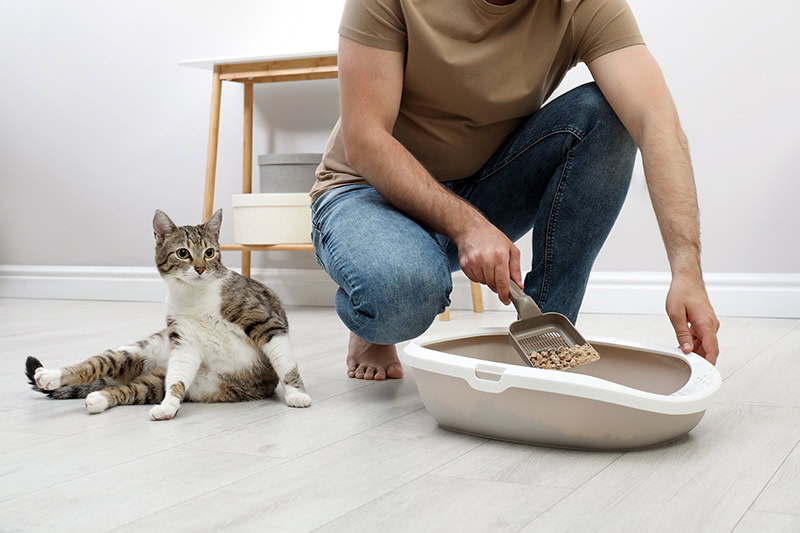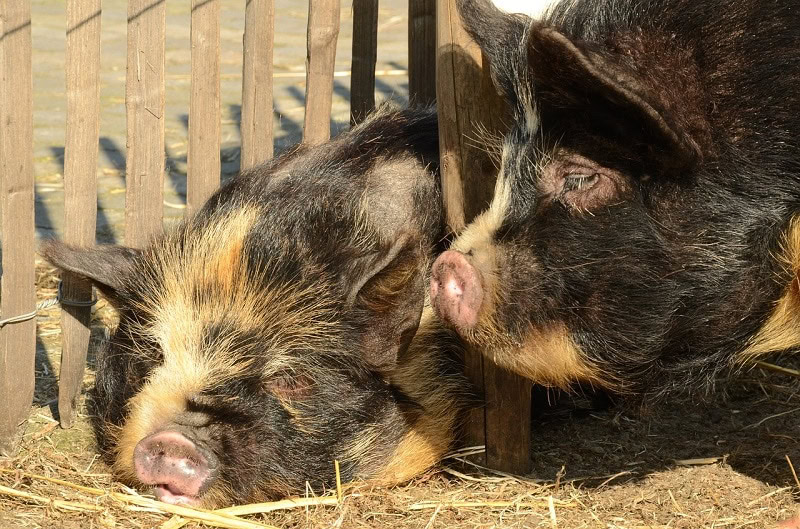VET APPROVED

The information is current and up-to-date in accordance with the latest veterinarian research.
Learn more »Cats are amazing companions, even if they can be a bit naughty. If you’ve had a cat in your home, you know how difficult it is to keep them away from something, particularly if it’s bad for them. One household item that seems to attract most cats’ attention is plants. Whether they are outside and on the prowl or in the house eyeing your potted plants, swiping, nibbling, and investigating are part of a cat’s typical day.
Can cats eat clover? The answer is that it depends on the type of clover. Unfortunately, some types of clover are toxic to cats. We’ll take a deeper look at cats and clover so you know which types are safe and which can harm your kitty.

What Is Clover?
Before we get into the ins and outs of whether cats can eat clover, it’s important to note that there are different types of clover. When we think of clover, we usually think of the shamrock type that has three leaves and is used as a symbol of Ireland and St. Patrick’s Day. It’s an Oxalis species and is not in the same family as other types of clover.
However, what many people sometimes call a shamrock is a true species of clover called white clover. White clovers are in the genus Trifolium. White clover also has three leaves, causing many people to think that they are shamrocks. However, they also produce white, fluffy-looking flowers. So even though white clovers look like shamrocks when it comes to their foliage, they are two separate species, which is important to distinguish.
Another type of clover is a red clover. Red clover is also in the genus Trifolium and produces fluffy flowers that look similar to the flowers produced by white clover. However, the flowers are red or pink instead of white. The foliage also looks different; it’s not like the foliage of a white clover or shamrock.
There are other types of clover, but white and red clover are what your cat is most likely to munch on in the yard.
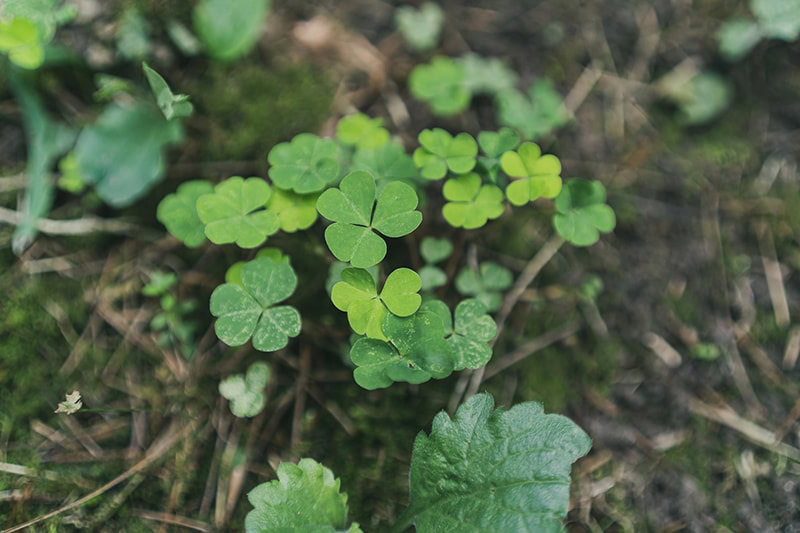
Is All Clover Toxic to Cats?
Shamrock is toxic to cats. Every part of the plant, including the stem, can affect your kitty. As a member of the Oxalis genus, shamrock plants contain calcium oxalates, which can bind to the calcium in a cat’s bloodstream. This will eventually reach your cat’s urinary tract as calcium oxalate crystals. This results in bladder stones and kidney infections.
However, there’s little evidence that white or red clover is toxic to cats. The leaves of white clover contain glycosides, which may harm your cat in large quantities. If your cat eats one white clover in the backyard, it isn’t going to cause them any harm. Red clovers are also not known to harm cats.
If you are concerned about something your cat has eaten or have questions, we suggest booking a call with one of our PangoVet veterinarians.
Shamrock Toxicity in Cats
If your cat eats some of the shamrock plant, they may not experience any signs of toxicity.
- Inappetence
- Abdominal pain
- Diarrhea
- Vomiting
- Excessive drooling
- Tremors
- Blood in urine
- Lethargy
Take your cat to the veterinarian if you notice any of the previous signs after your cat eats a shamrock plant.
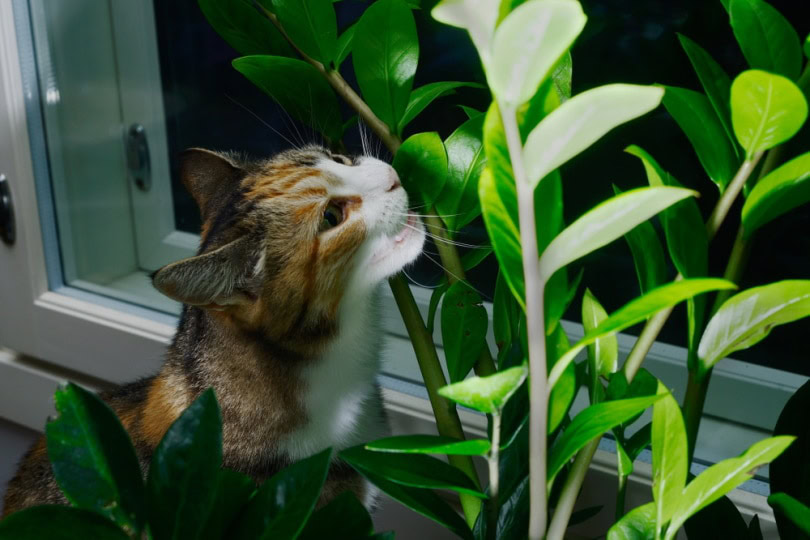
Kidney Failure
Unfortunately, shamrock toxicity can also lead to kidney failure. If your cat’s kidneys cannot remove the toxins, they will begin to shut down. These cases are rare, but knowing what to look for is important.
- Loss of appetite
- Lethargy
- Anorexia
- Diarrhea with blood
- Bloody vomit
- Bad breath
- Excessive drinking
- Dehydration
- Seizures
- Depression
What Happens If My Cat Eats Clover or Shamrocks?
Eating white or red clover may not cause your cat to show any signs, but they may vomit if the clover is hard to digest. This isn’t usually a sign of toxicity, especially if your cat only eats one white or red clover. Cats sometimes have difficulty digesting plant matter since they are obligate carnivores, and their bodies are designed to eat and digest mostly meat.
Shamrock poisoning isn’t as common as you’d think. Cats have a way of steering clear of many dangerous plants they encounter. Not to mention, the bitter taste may keep them from eating much of it. If your cat is caught eating these plants, and their kidneys are healthy, they may pass the toxins without problems. Still, your veterinarian must be contacted if they are showing any signs of toxicity.
If possible, tell them how much your cat ate and how long ago it happened. Even if your cat isn’t showing signs, the veterinarian will know your cat’s health status. This will help them decide whether your kitty should come in for an evaluation or if the situation can be monitored from home.

Final Thoughts
If you have a cat in your home, you don’t have too much to worry about if you see them munching on clover. However, shamrock is toxic to cats. If your cat eats shamrock, call your veterinarian right away for advice. For pet parents who allow their feline friends to wander outside, pay close attention to the areas where they roam. You never know when they may find a patch of clover and become intrigued, and while eating one or two won’t usually harm them, they still shouldn’t eat too much.
See Also:
- Can Cats Eat Oats? Vet Approved Nutrition Facts
- Can Cats Eat Whipped Cream? Vet Approved Nutrition Facts & FAQ
Featured Image Credit: kiki Wang, Unsplash
